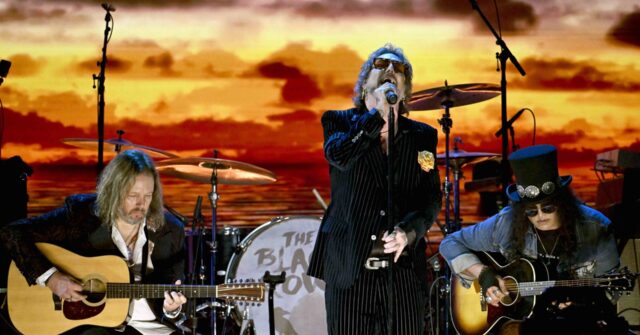Fire Aid was one of the best concerts I have ever seen. More than that, it raised $100 million to help victims of the Palisades and Eaton Fires.
Questions have arisen over the last week about how that money is being spent. I think the questions are fair, and that some of the spending choices are, to say the least, debatable. But many of the grant recipients are, in fact, helping residents of the fire zones, both directly and indirectly.
I know this, because I’m one of them.
Take “After the Fire,” led by Jennifer Gray Thompson, a fire survivor who has become one of the country’s leading experts on wildfire recovery. Rep. Kevin Kiley (R-CA) — whom I like, by the way — singled out After the Fire in a letter to U.S. Attorney General Pam Bondi. He noted that it specializes in “civic engagement,” a function that he said had “a tenuous connection (at best)” to the fire.
I’ve seen Thompson’s work on the ground in Los Angeles. She has provided advice to residents, including me, about how to manage the financial and practical challenges of the fire (our house survived but was damaged).
Most important of all, it was Thompson who helped connect residents of in Pacific Palisades, in the west, to those in Altadena, in the east, so they could join forces to push insurance companies to honor their policies.
There are other groups doing great work, too. “Change Reaction” is a philanthropic platform that gives money directly to recipients. Hundreds of displaced families received emergency cash grants donated by local philanthropists Greg and Jodi Perlman through Change Reaction. That was before Fire Aid, but after witnessing the way the organization is run, I would have confidence in the way it spends Fire Aid grants.
I have my doubts about some other groups.
I am not sure, for instance, why the “California Native Vote Project” received funding. There are 16 Native Americans in Pacific Palisades (0.07% of a population about 23,000), and 46 in Altadena (0.1% of 46,000). The organization’s primary focus is voting and has controversial views: it opposes immigration enforcement, for example. Anything with “vote” in its title should have raised red flags.
The devoted local journalists at Circling the News raise an important objection: none of the funds from Fire Aid are going directly to residents. All of them pass through organizations first.
That might be for legal reasons, or practical ones, but it is also not how many residents expected the fundraiser to work, and possibly not how donors thought it would work when they were watching the concert on television at home.
So there is a feeling among some residents — not entirely unjustified — that there has been a bait-and-switch. It feels like the latest disappointment, after so many promised so much.
Mayor Karen Bass, for example, keeps pledging “fast-track” permitting for rebuilding that never seems to happen. Gov. Gavin Newsom (D) signed a $100 million allocation — equal to Fire Aid — for low-income housing, while residents still struggle to rebuild what were once “affordable” homes.
But negative stories, while compelling, aren’t the only ones.
The federal government has generally done an outstanding job of removing hazardous waste and debris — far ahead of schedule. Some residents are already rebuilding: one house in my neighborhood is even being rebuilt by robots.
And some organizations, too, are doing great work.
Fire Aid may be flawed, but it’s not Fyre Festival, the notorious fraud. Some of it, at least, is money well spent.
Joel B. Pollak is Senior Editor-at-Large at Breitbart News and the host of Breitbart News Sunday on Sirius XM Patriot on Sunday evenings from 7 p.m. to 10 p.m. ET (4 p.m. to 7 p.m. PT). He is the author of Trump 2.0: The Most Dramatic ‘First 100 Days’ in Presidential History, available for Amazon Kindle. He is also the author of The Trumpian Virtues: The Lessons and Legacy of Donald Trump’s Presidency, now available on Audible. He is a winner of the 2018 Robert Novak Journalism Alumni Fellowship. Follow him on Twitter at @joelpollak.
Read the full article here
